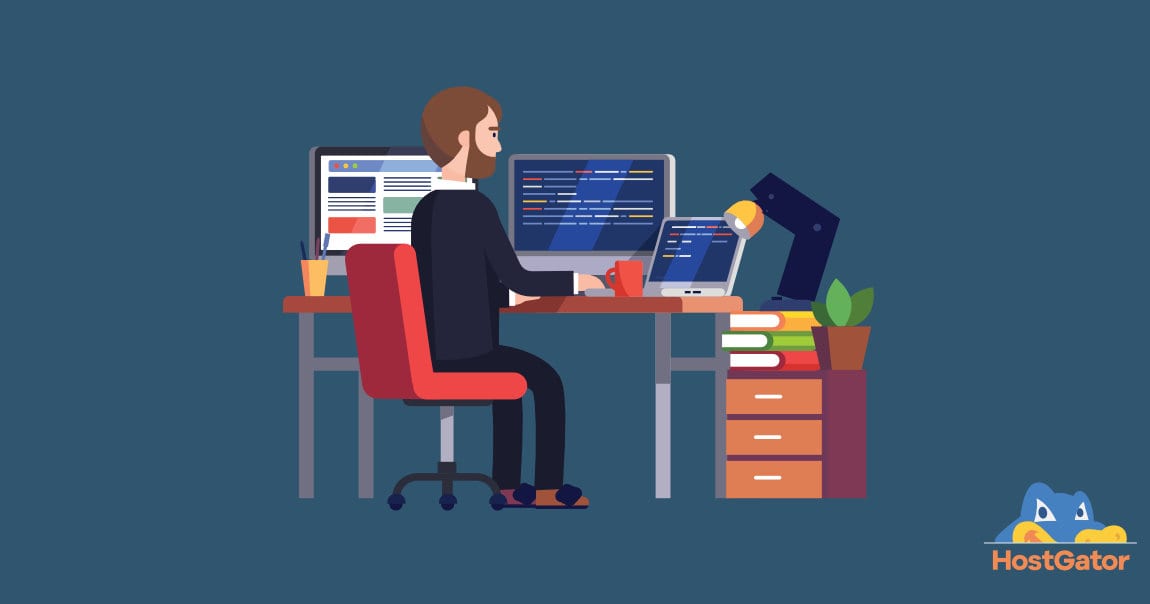Are you just one of the millions of employees who’ve all of a sudden absent from days at the workplace to doing the job at home mainly because of the coronavirus outbreak? Operating from household normally takes some adjustment, in particular on small detect. And one particular of the most crucial changes is contemplating in another way about cybersecurity at home.
When you operate in an business, your company’s IT people target on preserving hackers out of the system. When you function at home, it is your responsibility, as well.
That’s simply because hackers are exploiting the fast shift to distant do the job by concentrating on staff with malware and phishing attacks. Usually, they are carrying out it by impersonating health officers and location up bogus web sites that say they deliver information about covid-19. Ugh.
It’s a lot to offer with all at at the time. But getting these 4 ways can shield your company—and your livelihood—while everybody hunkers down at property.
1. Acquired a organization-issued laptop computer or cellular phone? Keep it safe
If you are blessed ample to have tech resources offered by your employer, defend them from information intruders. In this article are 3 keys to locking hackers out of your organization-issued equipment.
Store your firm notebook and cellular phone securely when you are not employing them. Intruders will crack into cars and trucks to steal electronics, and at times individuals robberies direct to info breaches that expense companies their standing, buyers and fines or settlements.
Use your corporation tech only for get the job done. Conserve the social media and personalized emails for your very own mobile phone and computer. Why? There’s a globe of phishing web sites, social media frauds and e mail phishing fraud relevant to the covid-19 pandemic.
If you unintentionally click on just one of people traps, you could conclude up with malware on your company device—and in your company’s community. Worst situation state of affairs, ransomware locks up your company’s databases right up until your employer pays up or shuts down.
Do not set up any new software program or applications on work products with out enterprise acceptance. Every single new application will come with vulnerabilities, a obligation to retain them updated and the chance of putting in something corrupted. Stick with what your business would like you to use.
2. Connect to perform securely
Ideally, your corporation will have a virtual non-public community (VPN) that you must use to log in to your perform e mail and data files. If so, you have received a safe, encrypted link to do the job, and no just one can see the knowledge you’re sending and receiving.
If your business has a VPN but you really do not have to use it to log in, use it anyway. Certainly, it will very likely gradual down your relationship, but it will deal with any gaps in your property internet security (which we’ll search at in a bit). If you’re making use of a community Wi-Fi community for operate, yikes. You are placing your company’s facts at risk—including points like your e mail ID and password—unless you use a VPN.
Examine your cybersecurity set up at home. Many of us are peaceful about cybersecurity at dwelling simply because we do not believe cyberthieves go for modest targets. Nonetheless, thanks to the magic of the internet, hackers can search on the internet for vulnerable IP addresses and go soon after them from anywhere.
Stepping up your property internet security tends to make your private information and facts safer. And when you do the job from home, it shields your company, too. Here’s what to check out:
1. Do you have malware defense on your equipment?
This is vital no matter if you are working with a organization-issued computer or your individual. Standard scans and firewall security can retain viruses and other crud off your computer and telephone, wherever they could otherwise locate their way into your employer’s system.
2. Do you preserve your functioning programs, apps and plans up to day?
It’s true—Windows and Android updates can get for a longer time than you’d like when you are occupied with function. But when a security update announces alone, the time to put in it is now.
That is mainly because by the time the business sends that security update out, hackers know about it, too—and they are busy seeking for machines that are not up-to-date nevertheless so they can break into them. (Unpatched software program is how the Equifax hack transpired.)
3. Is your household Wi-Fi network password robust and unique?
A powerful, unique password will retain snoops and opportunists out of your home network—and out of your get the job done at property. Specifically if you are living in a crowded place where lots of people nearby can see your network when they search for Wi-Fi, you want a excellent password.
Potent means your password is at the very least 8 figures very long, with a random blend of letters, numbers and figures. Unique usually means you only use that password for your house Wi-Fi network, not for any other accounts like e mail and social media. Which is mainly because if a person guesses your Wi-Fi password, they could then also get into these other accounts.
4. Can any individual with an internet link log in to your residence internet gateway?
You may well be stunned. Even if you have created a strong household Wi-Fi password, you must still examine your internet components.
That’s simply because your router may perhaps have arrived with default login qualifications of “admin/admin.” People are weak, but who’s heading to get shut sufficient to your router to mess with it? Any individual who cares to glimpse it up. Hackers can search for IP addresses with default router login credentials, log in and get over—all from the comfort of anywhere they materialize to be.
If that happens, attackers can see every little thing that happens on your community. That signifies they can effortlessly steal your function e mail login data and then go on to hack your employer. Here’s a essential stroll-as a result of of how to adjust the password on your router and other community hardware.
3. Step up your password security
Powerful and exclusive passwords aren’t just for your home Wi-Fi network. Preferably, you would use a one of a kind password for each and every one account you have and use a password supervisor to keep monitor of them all.
But at the pretty minimum, you need sturdy, exclusive passwords for your work electronic mail and other work-linked accounts, in addition your personal electronic mail, social media, banking and utility accounts.
When you use a distinctive password for every single account, it helps prevent hackers from utilizing a stolen password of yours like a skeleton key to unlock your other accounts. And that can retain criminals out of your corporation details as perfectly as your individual information and facts.
4. View out for phishing
There’s so significantly malware out there suitable now linked to the coronavirus. Scammers are heading following persons in their inbox with pretend cures and offers of “new information” built to trick victims into offering up their electronic mail or Workplace365 login information and facts.
Other coronavirus frauds are dumping ransomware into health care providers’ methods at the worst feasible time. And continue to many others are tricking employees into paying phony invoices associated in some way to the coronavirus outbreak.
What can you do? Observe excellent electronic mail hygiene.
- Look at the sender’s e mail tackle (not just the sender’s title) prior to clicking on backlinks or attachments in an email, specially if you did not count on to receive it. Scammers typically impersonate company proprietors or executives to trick staff into building funds transfers.
- Validate unconventional or urgent email requests from other people in the business by mobile phone, video or chat ahead of you act. Scammers know that producing a perception of urgency can cause men and women to rush into steps they wouldn’t usually acquire.
- Never click on on any one-way links, attachments or pop-up bins if you are not selected who despatched them and why. You could end up with malware or stolen login credentials.
- Be careful about viewing unfamiliar web-sites, particularly if you are looking for covid-19 facts. A ton of destructive sites with “coronavirus” in the domain name have cropped up in recent months, created to steal visitor info or distribute malware.
- Report suspected phishing e-mails to your company’s IT people today. You may not be the only staff who’s receiving them.
So that is the essentials of cybersecurity for the new remote employee: Guard your business-issued gadgets, hook up securely, use powerful and distinctive passwords and check out out for phishing. By pursuing these actions, you can protect your company and anyone who will work for it.
Run a little organization? Read through our checklist for securing your employees’ remote workspaces.



![How to Create Your Freelance Brand [5-Step Guide]](https://mdvirtue.com/wp-content/uploads/2022/02/How-to-Create-Your-Freelance-Brand-5-Step-Guide-400x250.jpeg)
![How to Build a Coaching Website on WordPress [Expert Guide]](https://mdvirtue.com/wp-content/uploads/2022/02/How-to-Build-a-Coaching-Website-on-WordPress-Expert-Guide-400x250.jpeg)

0 Comments